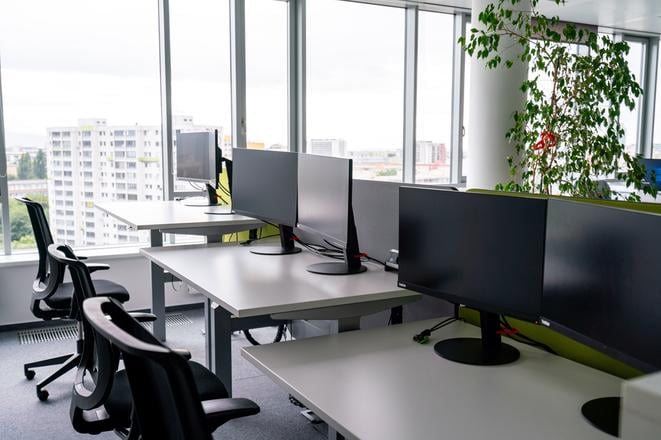Unlike many other sectors, the business service centre (BSC) sector experienced very few difficulties with the pandemic-induced transition to across-the-board home office operation. Two years into the pandemic, office life has not been restored to its previous form and BSCs are in the process of deciding whether it ever should. Most of them may not return to the way things were.
“The pandemic has made it easier for BSC employees to work remotely, and we do not envision a complete reversal back to the traditional office set up once the pandemic passes," Lygia Fullbrook, director of KPMG in Slovakia and the sector leader for shared service centres, told The Slovak Spectator. The centres will likely focus on combining the best of both worlds, the hybrid model, matching the flexibility of remote working together with working from the office for team development and learning needs, she added.
This model, which has been labelled as hybrid work, will reduce office spaces. According to the survey conducted among members of the Business Service Center Forum (BSCF), 55 percent of its member companies are planning some reductions over the next few years, while 35 percent are not planning any changes and 8 percent need for more space, according to BSCF vice chair Martin Bednár.
Most BSCs had previous experience with remote work, but now they are also thinking about how to design their offices for the hybrid working model, which needs to be different than in the past. While the offices at Henkel’s business service centre in Bratislava remain the same size, the share of pure workstation areas has decreased while the number of project areas, focus rooms, and team rooms has significantly increased.
“Any kind of creative, collaborative work has to be supported by the office infrastructure,” said Christian Schulz, President of Henkel Slovensko and Head of Global Business Solutions+ Bratislava. In the past, around 70 percent of the entire office environment at Henkel had work stations; now it’s less than 50 percent.



